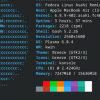Samsung Plans Faster DDR Memory
Company begins sampling 300-MHz DDR SDRAM chip.
Samsung Electronics has begun sample production of its fastest DDR SDRAM chip to date.
The new chip can operate at speeds of up to 300 MHz and has a capacity of 128 megabits. The DDR SDRAM chip offers a data transfer speed of 2.4 gigabits per second, according to Samsung.
The company originally announced the development of the 300-MHz DDR SDRAM chip in May, although at the time officials said it would have a capacity of 64 megabits when it reached mass production. Samsung plans to release that product in the third quarter of this year.
DDR memory can transfer data at twice the speed of conventional SDRAM chips. The technology is currently competing with a proprietary memory interface technology developed by Rambus, called RDRAM, for dominance in the high-end computer memory market.
Because high data transfer speeds are the key feature of both technologies, each targets the high-performance graphics and video markets in addition to high-end PCs and workstations.
DDR Vs. RDRAM
Proponents of DDR memory say the standard offers an evolutionary approach to improvements over today's popular mainstream memory technology, SDRAM. Plus, they suggest DDR provides better performance at a small price premium. Proponents expect that premium will continue to shrink as manufacturers continue to ramp production.
RDRAM, on the other hand, requires memory manufacturers to pay creator Rambus a licensing fee. That licensing fee, combined with higher production costs, means RDRAM has traditionally carried a high premium compared to SDRAM. While RDRAM prices have declined noticeably in recent months, it still carries a significant price premium. Despite its higher price, early PCWorld.com tests show RDRAM offers little performance improvement over SDRAM or DDR when used in systems with Intel's Pentium III processor. Currently, systems using Intel's Pentium 4 chip work with RDRAM only.
RDRAM is also plagued by its creator's tarnished public image. Rambus has infuriated much of the memory industry by filing lawsuits claiming ownership of basic patents to SDRAM. Rambus recently lost its first case, which was against Infineon Technologies.









































































